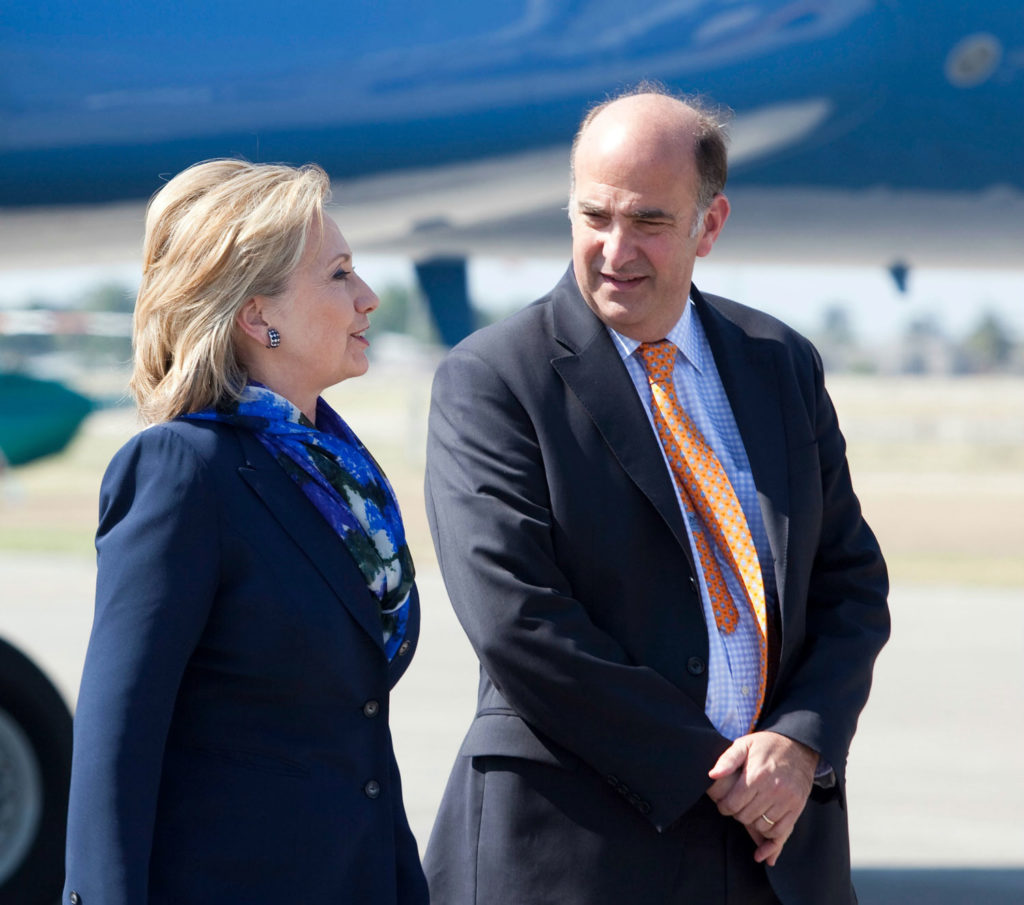These Special Appointees Often Undermine US Foreign Policy Goals. Here’s How to Fix the Problem.
Ben Roper /
There’s an age-old rule of family gatherings that still holds true today: Stay out of grandma’s way in the kitchen.
She has a meal to prepare and knows exactly what she’s doing, and how to do it. Too many cooks causes inefficiency, miscommunication, and a confusion of leadership roles.
This “too many cooks” problem applies in government just as well as the kitchen. A prime example of it can be seen in the State Department’s special envoys.
Special envoys are presidential appointees who are given a mandate to address specific foreign policy concerns that may range from Holocaust issues to LGBT issues to Arctic issues.
Special envoys work in conjunction with American embassies abroad, yet retain a high degree of independence and flexibility to achieve their mission apart from the work of ambassadors and their staff. As one might imagine, this has led to organizational conflicts.
This problem can be tolerated in exceptional cases. But under the previous administration, the exceptions became common. The use of special envoys increased during the Obama years and the State Department reported a total of 67 special envoys representing U.S. interests overseas.
The work of special envoys are often duplicative, as they can obstruct the work of embassies and sometimes compete for influence. Adding to confusion abroad, each envoy—whether paid or unpaid—receives a personal staff of foreign service officers and is often able to circumvent the normal lines of authority in order to “more efficiently” complete its mandate.
In a report on the efficiency of the State Department, Heritage Foundation fellow Brett Schaefer wrote:
This can format tensions with the existing State Department bureaucracy with overlapping responsibilities, undermine the authority of U.S. ambassadors, and create confusion for foreign governments as to who actually represents the president.
Take the example of Kenneth Merten, a special envoy holding the title of Haiti special coordinator, a position designed to represent the United States in assisting with reconstruction after the 2010 earthquake.
Merten was appointed to handle the U.S. response in Haiti even though the U.S. already had a permanently stationed ambassador with staff and seven search and rescue teams. His position was a simple waste of taxpayer dollars, which is a live concern after the Trump administration proposed sharp cuts to the State Department budget that has nearly doubled since 2005.

Then-Ambassador to Haiti Kenneth Merten greets Secretary of State Hillary Clinton upon her arrival in Haiti in 2011. (Photo: Nicholas Gingold/Zuma Press/Newscom)
An even bigger waste? The fact that the position is still filled long after the situation should have been incorporated in to normal State Department and U.S. Agency for International Development business.
That’s not unusual for a special envoy. With sweeping mandates for action and no specific goals or timelines, special envoys can stretch their appointments out as long as possible, leaving themselves just enough reason to stay in the job.
No wonder Secretary of State Rex Tillerson wants to eliminate many of these envoys.
Congress may not see eye to eye with Tillerson on every envoy, but there is appetite for reform there as well. Sen. Bob Corker, R-Tenn., chairman of the Senate Foreign Relations Committee, had strong words for special envoys in July. He said:
[Special envoys] hurt the culture of our professional foreign service officers candidly because I think they see them in many cases as a workaround … I hope that we’ll do away with all of them that are unnecessary. And I think most of them are unnecessary.
Moving forward, the best way to address the waste is to restructure the State Department, starting with a healthy budget cut and the elimination of most special envoys.
For the envoys that stay in place, Congress should place clear constraints on their mandates and reform the way that envoys are appointed, and who gets to fill the position.
Under current law, special envoys can be appointed either by Congress or by executive appointment—but the current picture is quite imbalanced in favor of the executive. Only 11 of the current 67 special envoys were appointed by Congress.
Schaefer wrote, “Most of these senior officials are appointed by the president without need for Senate confirmation or consultation—and, hence, little oversight and accountability to the American people.”
Congress needs more say in the appointing of special envoys in order to correctly represent the interests of taxpayers in controlling where their money is allocated.
For starters, special envoys should be qualified individuals with career experience in foreign policy, and the best way to verify this is through the confirmation process.
This would also help remove the temptation of the president to use special envoys as an avenue for political patronage, rewarding supporters with a powerful appointment abroad.
In addition, if Congress decides that a special envoy is necessary in a given situation—such as providing relief in Haiti—it should put an expiration date on the service of the envoy to make sure that it does not continue when it is no longer necessary. If the need continues, Congress can always extend the expiration date.
The American people should not be alarmed at the retraction of special envoys from service. Issues such as North Korean aggression, the use of chemical weapons, and the conflict in Syria will still remain utmost priorities for the State Department.
With fewer cooks in the kitchen, taxpayer money will be saved, and the U.S. will project a more unified and decisive foreign policy.
